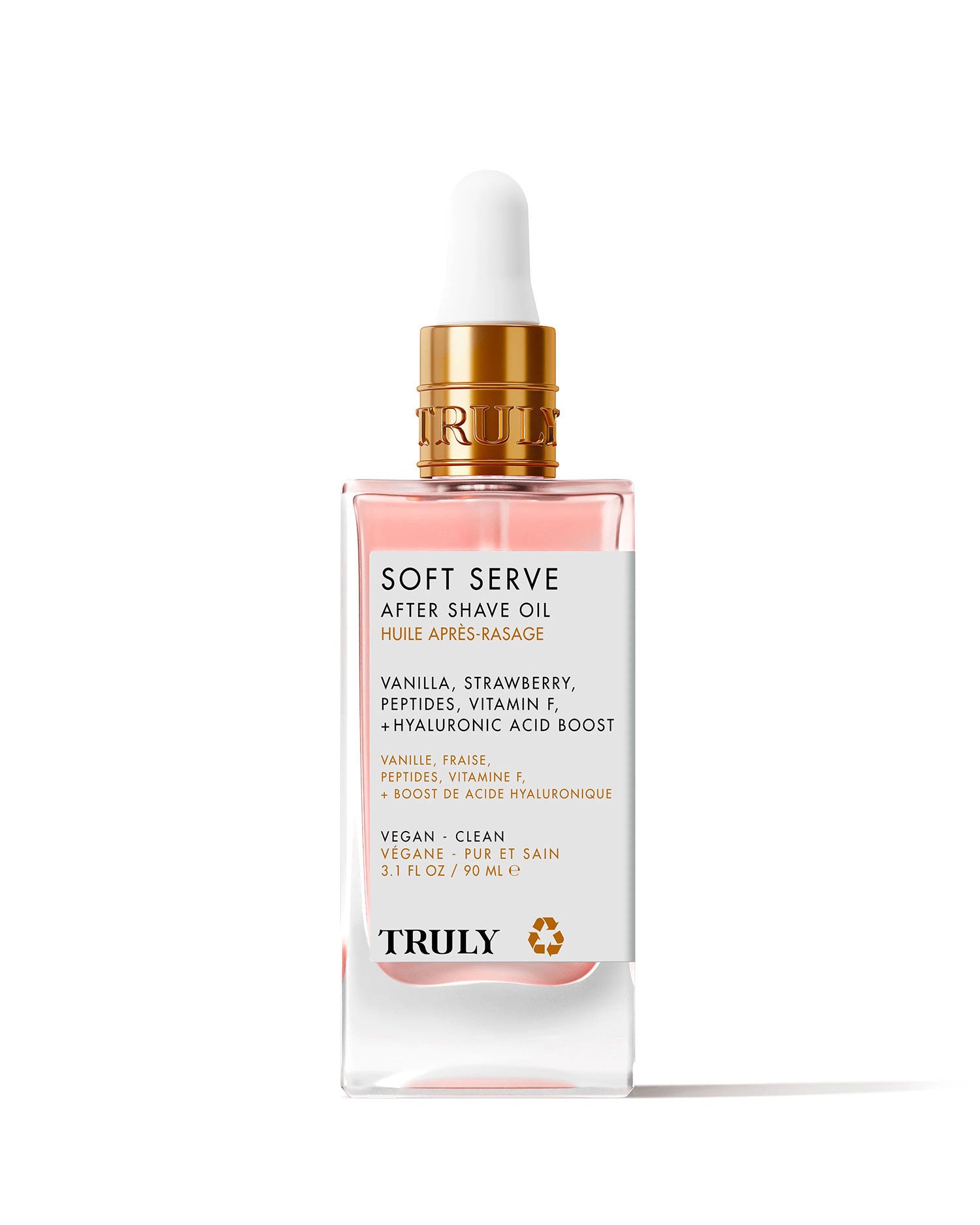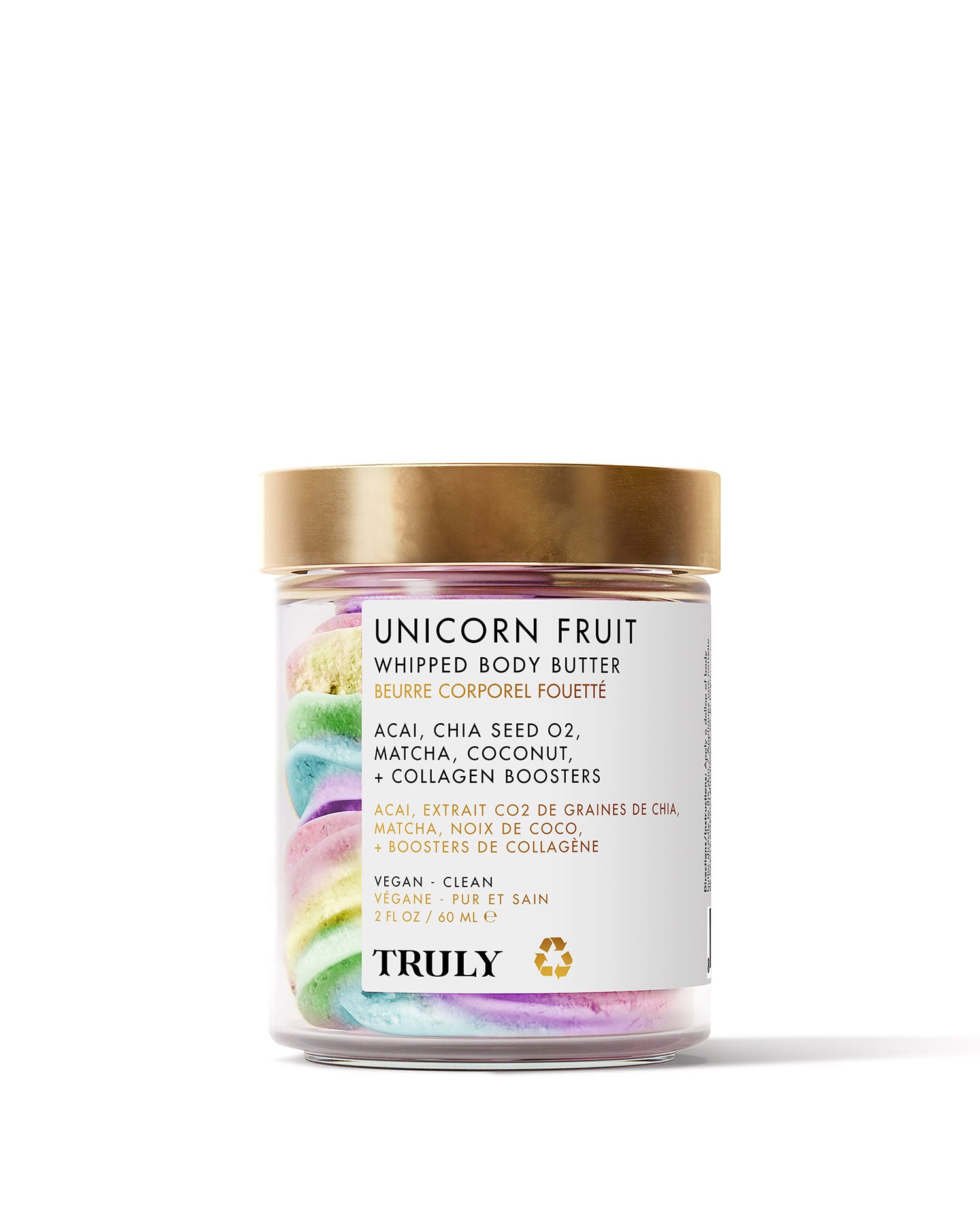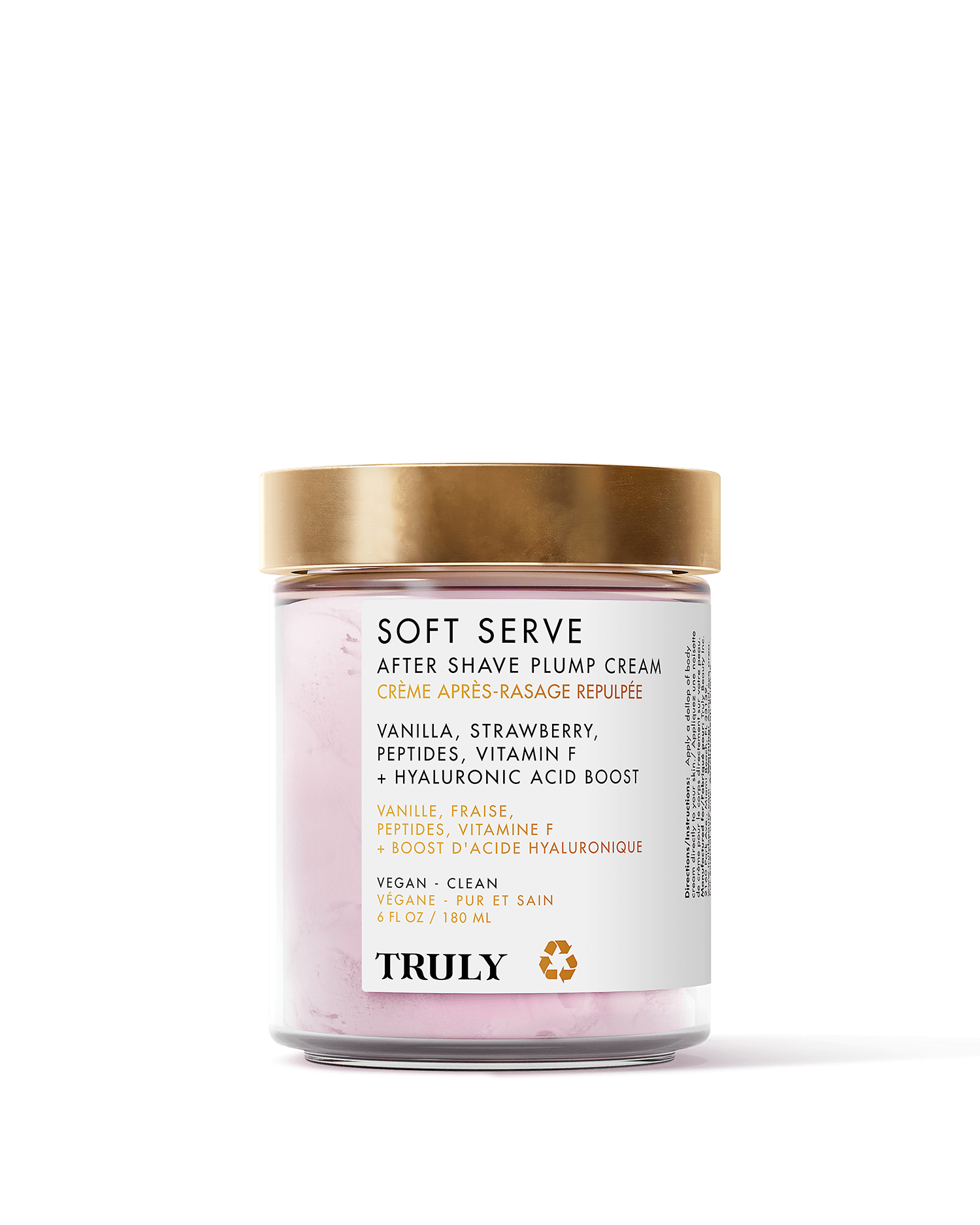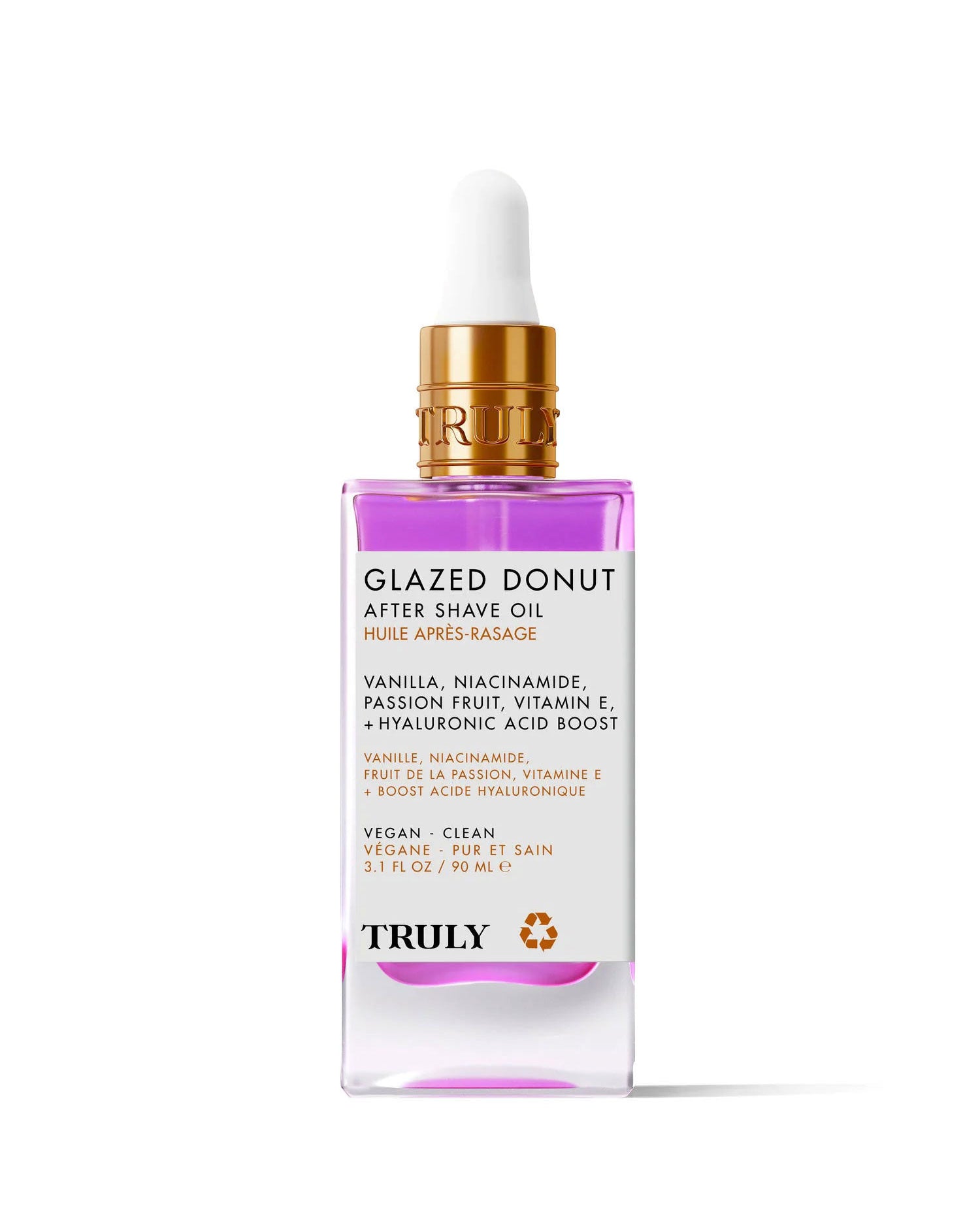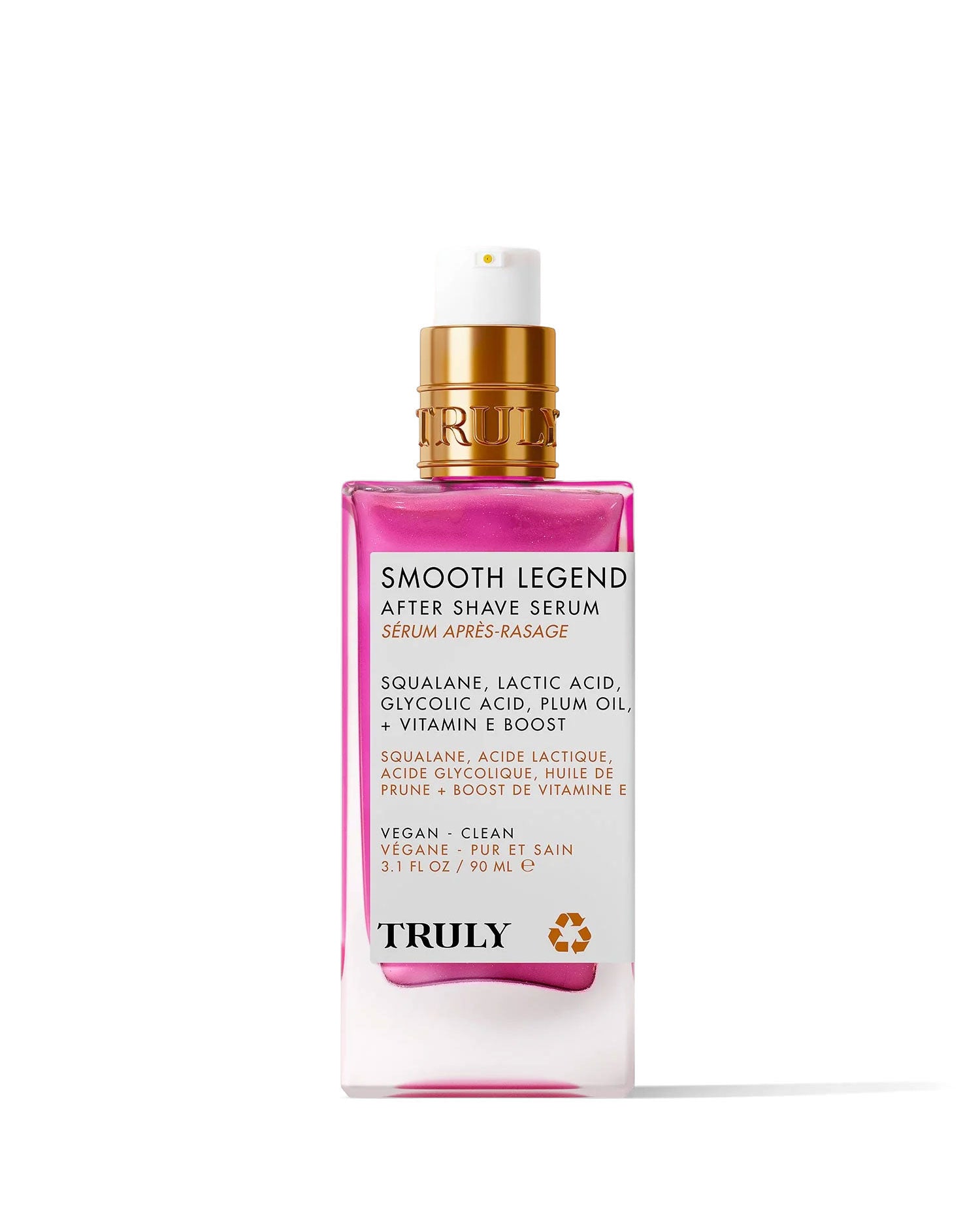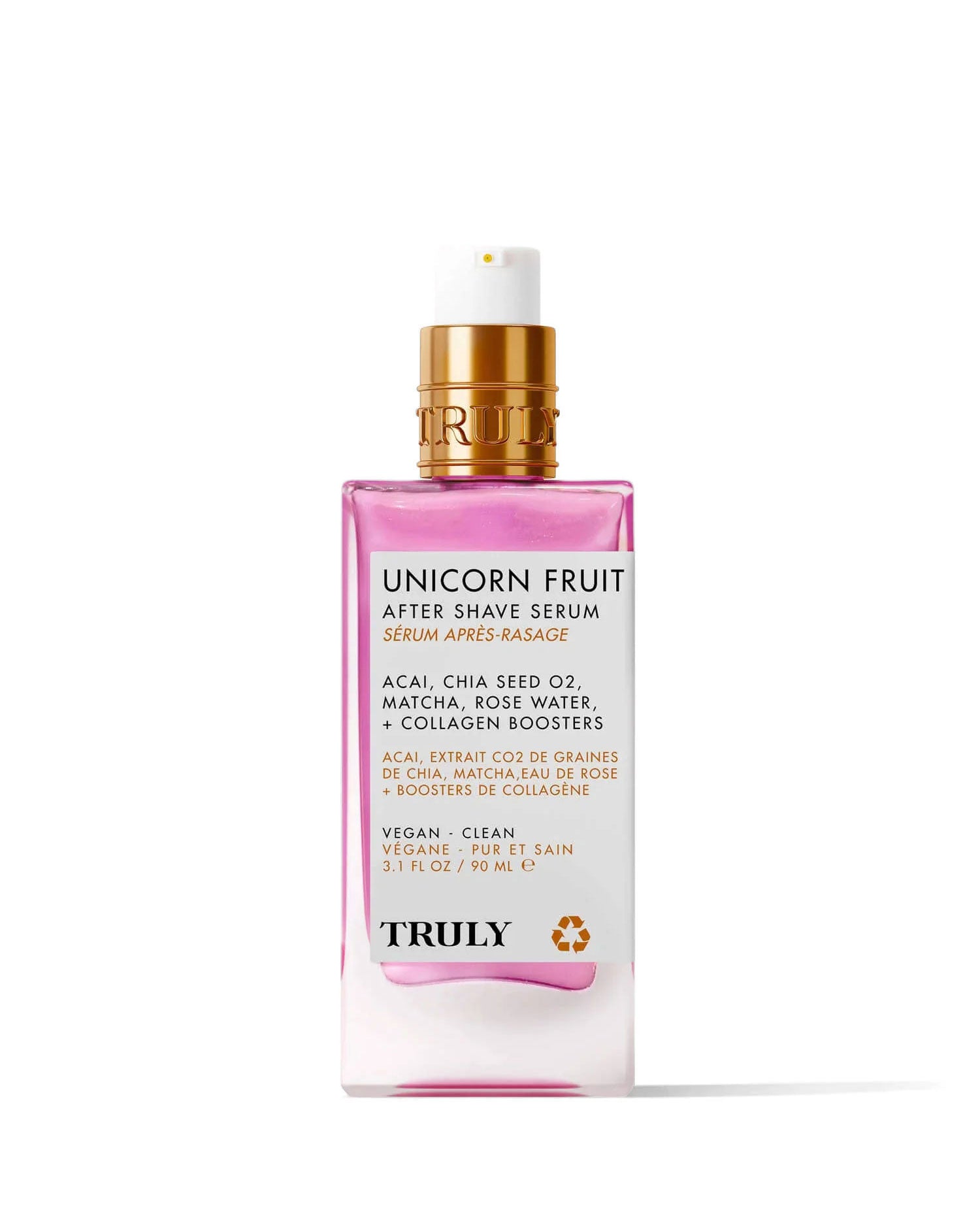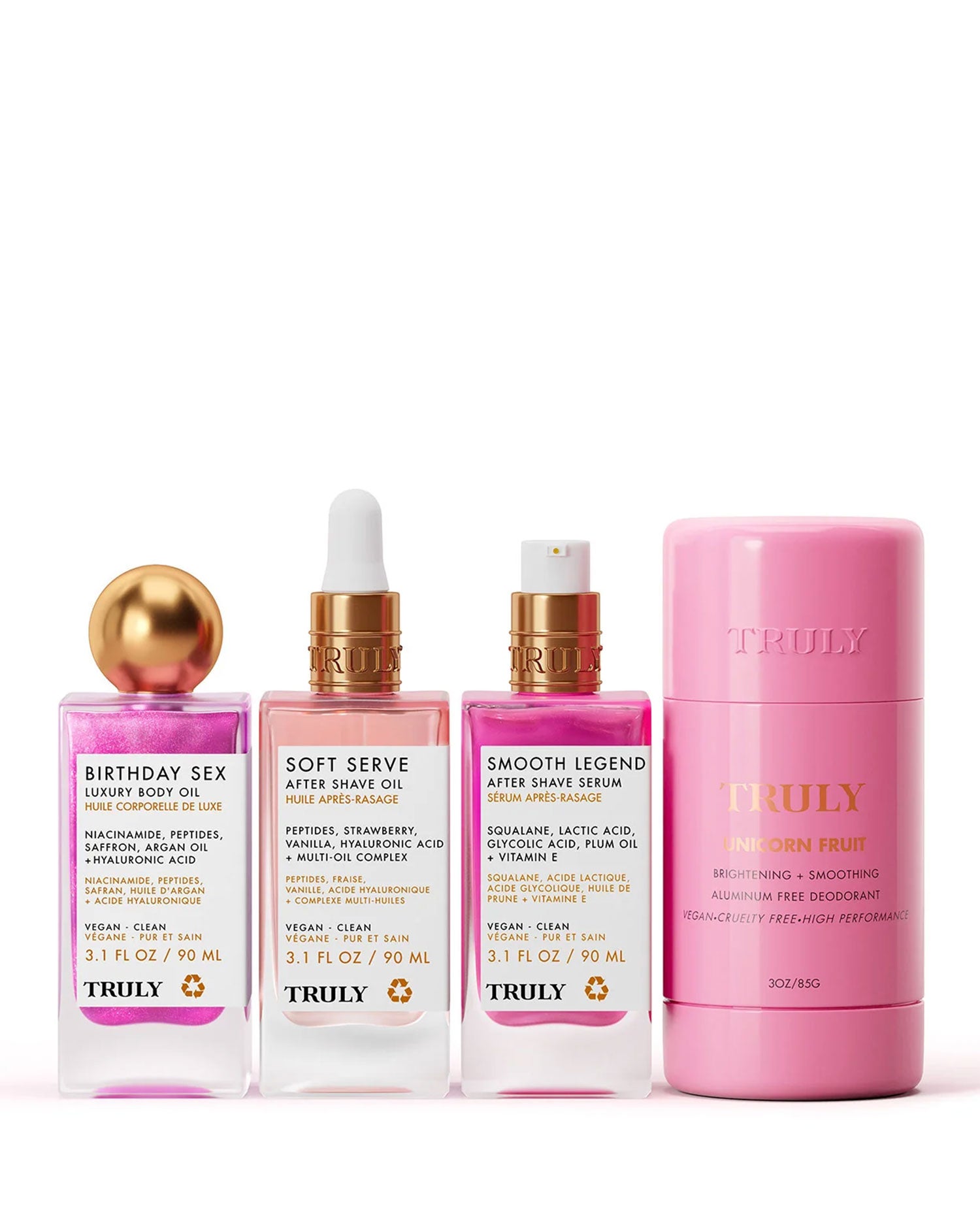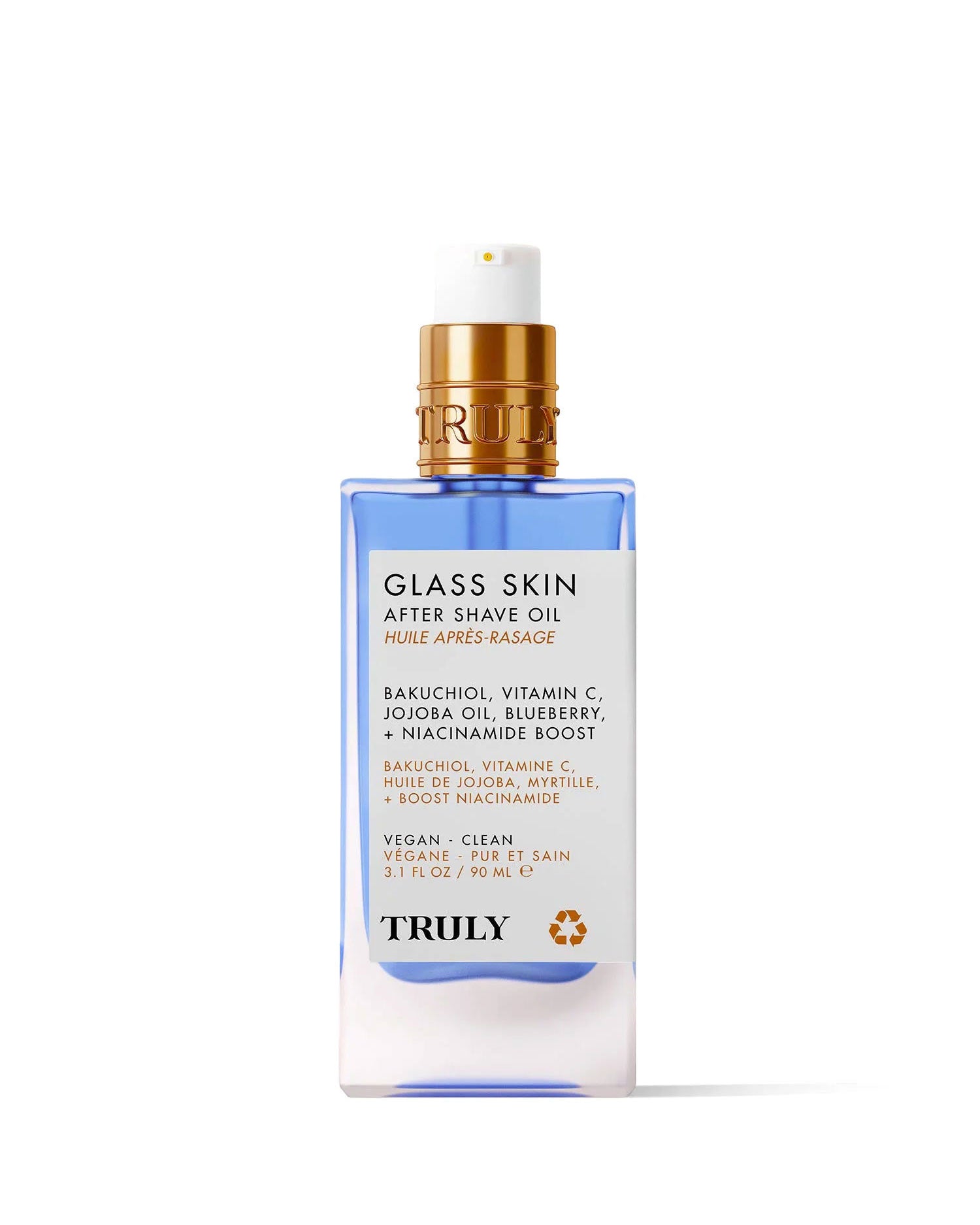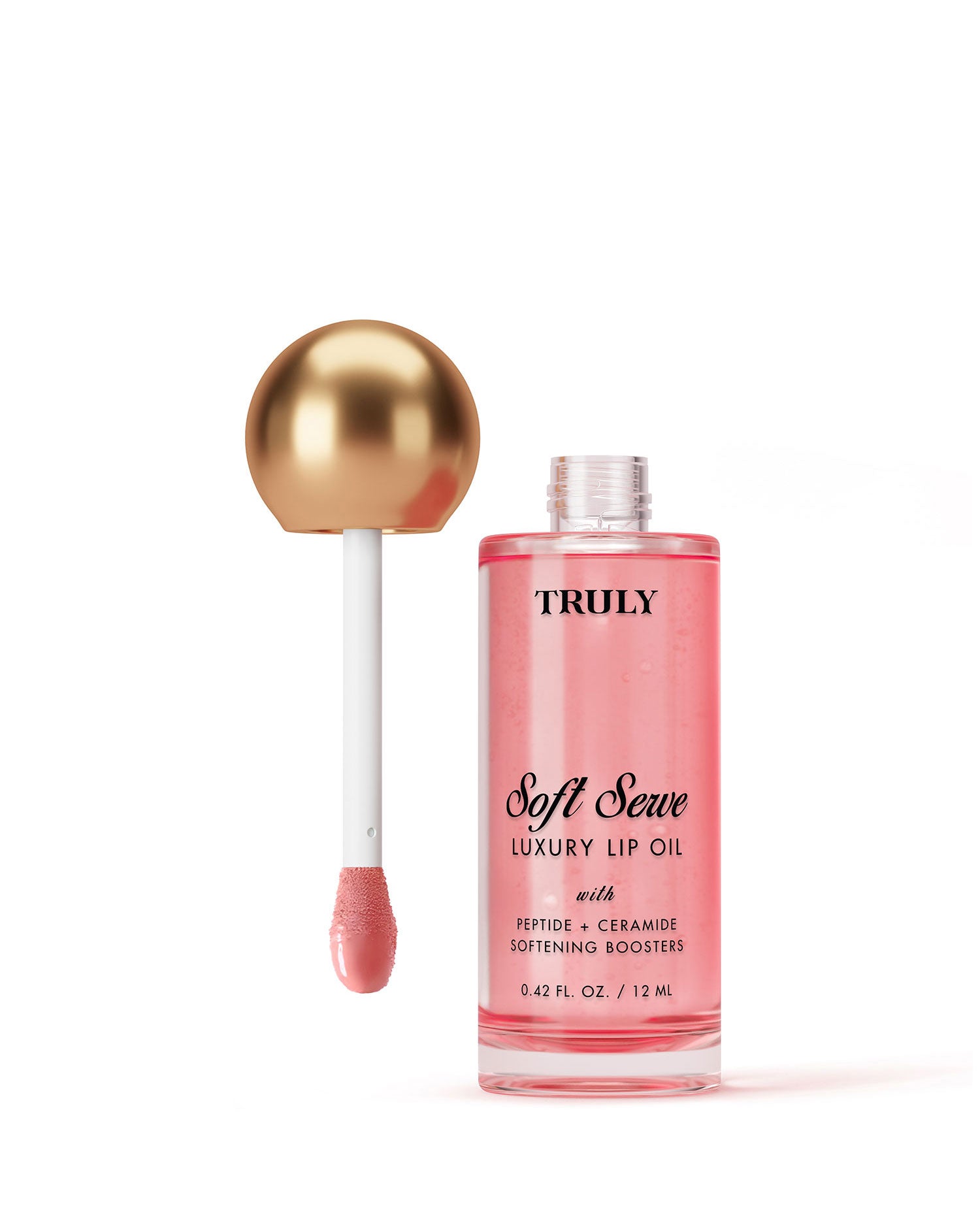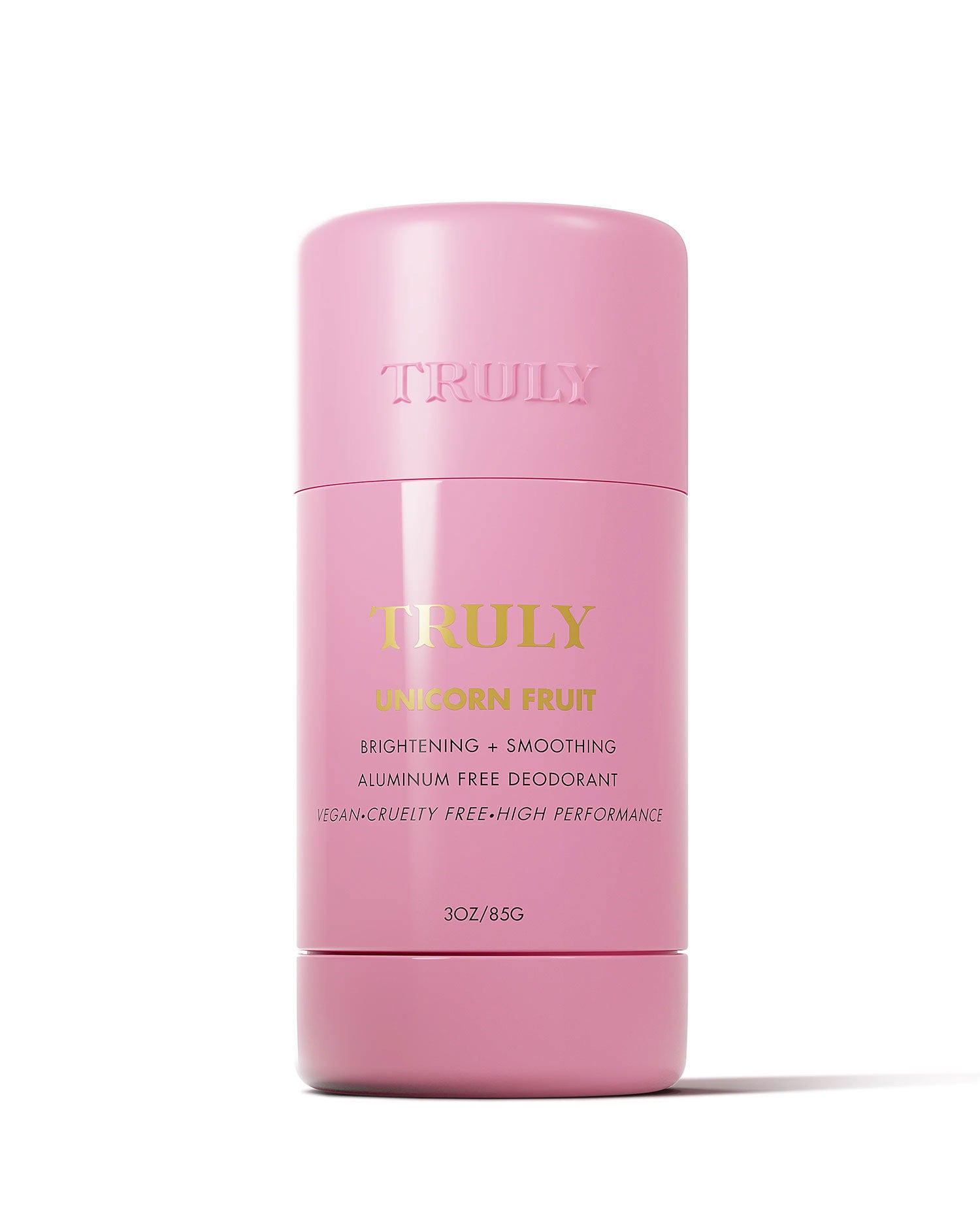Does Coconut Oil Help Sunburn?
January 09, 2024
By: Truly Beauty
You've heard great things, but does coconut oil help sunburn? We're here to find out.
Coconut oil has become a go-to natural remedy for many skin issues, thanks to its moisturizing and healing properties. But when it comes to sunburn, the answer isn’t as simple as slathering it on as soon as you step out of the sun. Timing and proper application are key to ensuring it helps rather than harms your skin.
So, can you use coconut oil on a sunburn? And how do you use it properly for optimum healing? Here’s everything you should know about using coconut oil for sunburn.
Cooling Coconut Oil-Infused Skincare
Does Coconut Oil Help Sunburn?
Yes, coconut oil can heal and help your skin recover after a sunburn.
Coconut oil boasts anti-inflammatory properties which aid skin regeneration. Alongside this, its antimicrobial activity slows the spread of harmful microorganisms. What's more, coconut oil is extremely moisturizing and barrier-supporting.
In short, using coconut oil for sunburn can indeed help skin heal and recover post-burn while keeping you protected against infections if you're peeling.
Just make sure you apply it at the right time. Since oil traps heat, coconut oil can make a sunburn worse if you apply it too quickly. And because it’s an occlusive that creates a barrier on the skin, it’s best to avoid using coconut oil on fresh burns or blisters.
Once your skin has cooled, using organic coconut oil can soothe sunburn and stimulate the healing process. It will nourish, hydrate, and soothe the skin while energizing the skin cells to repair damage.
The Science Behind Coconut Oil and Sunburn
There’s been little research or evidence on the effects of using coconut oil for sunburn. A 2020 animal study researched the effects of using virgin coconut oil on mice with sunburn from UV exposure. While researchers found that coconut oil possessed anti-inflammatory properties and reduced UV-damage-induced skin thickening, the study did not examine whether virgin coconut oil healed sunburn faster than a placebo.
While research is lacking, it’s clear that coconut oil may be beneficial for soothing and speeding up the healing process of sunburn provided that it’s applied once the skin has cooled—and not to newly sunburned skin.
Coconut oil offers potential benefits for soothing sunburn due to its moisturizing properties, anti-inflammatory compounds like polyphenols and lauric acid, and antioxidants that combat sun-induced free radicals.
Does coconut oil help sunburn? It can provide a cooling sensation and promote skin repair, particularly with lauric acid’s antimicrobial qualities aiding in infection prevention and healing.
However, coconut oil should not replace primary sun protection measures like sunscreen and protective clothing. Consult a healthcare professional or dermatologist for severe sunburn or skin concerns.
Best Coconut Oil for Sunburn
How to Use Coconut Oil for Sunburn

According to a 2021 review article, the majority of sunburns heal without treatment. That said, if you want to speed up the healing process and relieve symptoms of sunburn, coconut oil may help. Coconut oil can trap heat in the skin, which is why it’s best to avoid applying it to new sunburns. Instead, use coconut oil once your skin is cool to the touch.
For best results, apply virgin coconut oil directly to the affected area. Alternatively, opt for a moisturizer that contains coconut oil. There are plenty of lotions and butters that contain this ingredient. Choose a formula that contains other nourishing ingredients such as aloe vera, hyaluronic acid, and shea butter.
Do not apply coconut oil to severe burns or blisters. Even if they do feel cool to the touch, this emollient can trap heat and worsen sunburn.
When to Use Coconut Oil for Sunburn?
While not everyone favors using coconut oil for sunburn, it can be extremely helpful for easing the discomfort and speeding up healing.
“When your skin barrier is compromised, water evaporates more readily,” says Mona Gohara, MD, associate clinical professor of dermatology at Yale School of Medicine. “The more severe the burn, the more likely you are to lose water.” For that reason, it’s extremely important to keep your skin hydrated.
The best time to apply coconut oil to sunburn is one to days after it occurs. Then, your skin will be cooler and less inflamed, which means it will be safe to slather on the coconut oil. To ease any discomfort before then, apply aloe vera, take cool baths, and pop an ibuprofen.
Aloe Vera vs Coconut Oil for Sunburn
According to dermatologists, aloe vera is best in the early phase of sunburn as it won’t occlude the skin or trap heat. Instead, it will immediately soothe the skin. Board-certified dermatologist, Greeta Yadev, MD, recommends applying coconut oil on top of aloe vera to lock in lasting moisture and stimulate the healing process.
“Aloe vera allows the skin to breathe and is best used initially on a sunburn; coconut oil is better used in the later phase of sunburn recovery, when the skin is peeling,” he says.
With its antioxidants and antibacterial properties, aloe vera inhibits bacteria growth while promoting healing. It also contains vitamins A and E, as well as anti-inflammatory properties that can help relieve dry, itchy, or sunburned skin.
Coconut oil contains anti-inflammatory and antimicrobial properties that can also be helpful for treating sunburn. Plus, it’s a highly moisturizing ingredient that seals in moisture, preventing dryness and irritation.
Both aloe vera and coconut oil are effective natural remedies for sunburn. For best results, apply aloe vera first and finish with coconut oil when skin is cool to the touch.
Should You Put Coconut Oil On a Sunburn?
When used properly, coconut oil for sunburn can be an effective home remedy. However, due to its heat-trapping properties, you should never apply this oil to newly sunburned skin as it can make things worse. If your skin is warm to the touch, it’s best to apply a refrigerated aloe vera gel instead which is a gold standard for treating sunburn.
Alongside this, try soaking in a cool bath to calm inflamed skin or apply a cold washcloth to the affected areas. To prevent sunburn in the first place, always apply SPF 30 or higher every two hours when outdoors. Besides preventing sunburn, wearing sunscreen also significantly reduces your risk of skin cancer.
Does coconut oil help sunburn? Yes, as long as you apply it once your sunburn is cool to the touch. In addition to healing sunburn, coconut oil can also alleviate dry skin.
Coconut Oil for Sunscreen FAQs
Can Coconut Oil Prevent Sunscreen?
No. Coconut oil offers no sun protection. Always apply sunscreen before sun exposure.
How Soon After Sunburn Can I Use Coconut Oil?
Wait until your skin feels cool and inflammation has decreased, usually 24–48 hours after the burn.
Is Coconut Oil Safe for Sensitive Skin?
Generally yes, but it’s wise to test on a small patch first to avoid any reaction.
Can I Use Coconut Oil on Peeling Sunburned Skin?
Yes, coconut oil helps moisturize and soothe peeling skin during recovery.
In this article
-
Does Coconut Oil Help Sunburn?
-
Cooling Coconut Oil-Infused Skincare
-
Does Coconut Oil Help Sunburn?
-
The Science Behind Coconut Oil and Sunburn
-
Best Coconut Oil for Sunburn
-
How to Use Coconut Oil for Sunburn
-
When to Use Coconut Oil for Sunburn?
-
Aloe Vera vs Coconut Oil for Sunburn
-
Should You Put Coconut Oil On a Sunburn?
-
Coconut Oil for Sunscreen FAQs







